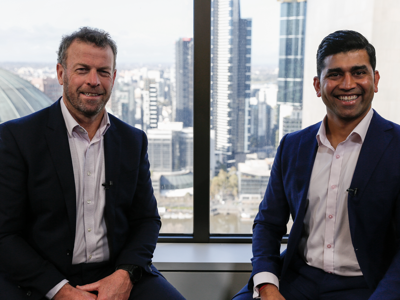Throughout the last two weeks of July, Zenith's equity research team met with a significant portion of the 2025 International Shares peer group. The overseas trip involved 53 meetings encompassing 88 unique investment strategies and four cities - Boston, New York, Edinburgh and London. The team share their broad views of investment managers from their recent travels.
United States
By Tom Goodrich, Senior Investment Analyst & Ethan Spiegel, Investment Analyst
Wall Street vs Main Street
Our recent journey across the United States, touching base in bustling hubs like New York and Boston, offered a fascinating glimpse into the current sentiment within the largest global economy.
There is still a constant hum of activity on the streets despite the heightened political climate, murmurs of US exceptionalism waning, and some cautiousness in financial markets.
Uncertainty regarding President Donald Trump's potential fiscal and foreign policies continues to drive the sentiment on Wall Street. Even with some confirmed trade deals, the unpredictable nature and scale of tariffs remain an ongoing issue.
This apprehension has led to a noticeable shift in how some fund managers positioned their investments during or soon after "Liberation Day". Many strategically moved towards what they consider "tariff-proof" stocks. This typically meant increasing their exposure to companies that are leaders in their domestic markets (whether that be in the US or outside), thereby reducing the potential impact of unpredictable international trade disputes.
Artificial Intelligence (AI)
AI continues to be a hot topic; however, the divergence in performance between the Magnificent 7 constituents throughout 2025 has delivered a different environment for fund managers to adapt to compared to the index concentration of the 12 months prior.
Rather than betting on pure AI companies, most managers are focusing on what are known as "picks and shovels" stocks. These companies sell or maintain the essential infrastructure for AI businesses to function, such as semiconductors, data centres, companies involved in power generation, and even those providing ventilation and air conditioning.
The key takeaway is that there are multiple ways to win from the exponential growth of AI, with managers spreading their exposure to maintain diversification whilst investing in the beneficiaries of the new technology.
On a lighter but notable point, the traditional business card seems to be a thing of the past, and ties have officially followed suit!
United Kingdom
By Jock Allen, Senior Investment Analyst & Stephen Colwell, Senior Investment Analyst
Amongst much gloating from UK-based portfolio managers on the Lions and Wallabies result, there were two key themes from our recent trip to Edinburgh and London.
Corporate consolidation
The UK asset management landscape has been buzzing with corporate activity, mirroring a trend we have seen in Australia. There has been a noticeable increase in mergers and acquisitions in the asset management space, as parties seek scale and broaden their reach. There were several examples of this over the past 12 months, with BNP Paribas acquiring AXA IM, Impax obtaining SKY Harbor Capital, and Foresight Group purchasing WHEB Asset Management.
Responsible investment landscape
The other thematic was the evolving regulatory and political landscape regarding responsible investment strategies. At present, ESG labelling is in a state of change. The introduction of the UK's Sustainability Disclosure Requirements (SDR) provided welcome guidelines for products in the region, whilst the Australian and EU regulators currently assess (and re-assess) their labelling requirements. These regulations aim to provide greater clarity and transparency regarding the sustainability credentials of investment products. Since their introduction, labelling requirements have prompted many strategies to be renamed, with fund managers generally opting for consistency across regions. Locally, we have seen several changes to fund names as a result.
Within the sustainability-focused subset, global equity impact managers have faced significant performance headwinds. Much of this has been apportioned to the lengths the Trump administration has gone to to repeal environmentally focused elements of the Inflation Reduction Act. This has resulted in the closure of several such impact managers in the UK market, underscoring the evolving dynamics within the responsible investing space and the importance of closely assessing longevity risk when considering allocations.
What's next?
Looking ahead, we anticipate a busy summer for UK-based fund managers engaging with the Australian market, conveniently aligning with England seeking its first Ashes win in Australia since 2011. Let’s hope for a little less gloating this time around!




